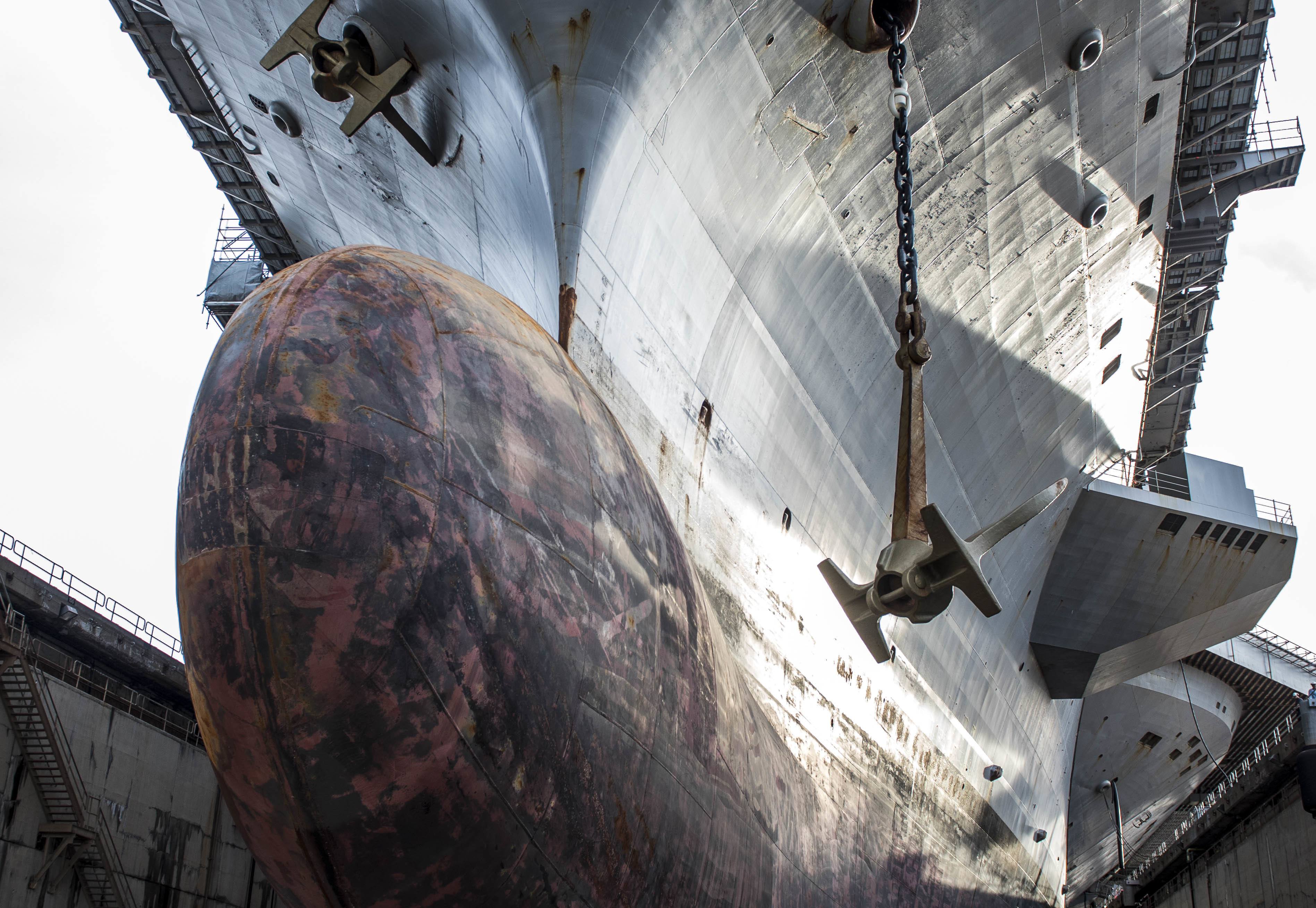
Due to an editing error, a previous version of this post was published without the author’s byline.
At a time the Navy is trying to improve fleet readiness, two construction projects intended to address submarine maintenance backlogs and support Littoral Combat Ship crews are at risk of being delayed because their funding could be diverted to pay for increased border security along the U.S. border with Mexico.
The Navy’s list of unobligated construction projects includes a $149 million in improvements to Portsmouth Naval Shipyard in Maine and $101 million for a pair of LCS support facilities.
Under the White House’s plan, military construction projects that were approved in the Fiscal Year 2019 budget process but have not had contracts awarded yet could be bill-payers for $8.6 billion in border security improvements that include more physical barriers between Mexico and the U.S.
“To make decisions about the use of military construction funds, the Joint Staff and [U.S. Northern Command] will examine a project list of specific border barrier construction projects provided by the Department of Homeland Security and will conduct a mission analysis on which border barrier projects would support the use of the armed forces,” read a late Monday statement from the Pentagon. “This analysis will help determine the border barrier projects the Department of Defense (DoD) might undertake and the level of funding required.”
The Portsmouth project will pay for a dry dock super flood basin and portal crane rail extension at the shipyard, which is at the core of the Navy’s plan to improve submarine readiness. The Navy has a backlog of submarines waiting for maintenance and is exploring the possibility of extending the life of some Los Angeles-class submarines as a way to fill the fleet’s pending submarine gap in the 2020s as older subs retire quicker than newer Virginia-class submarines come online.
A year ago, the Navy unveiled a new training plan for LCS crews. The LCS facilities in the FY 2019 budget are intended to support LCS crews at fleet concentration centers in Mayport, Fla., and San Diego.
Overall, the Navy and Marine Corps have $2.34 billion in unobligated construction projects that were approved as part of the FY 2019 budget. The vast majority are improvements to runways, piers, ammunition storage and base physical plant upgrades. An example is the $115-million needed for F-35B Lightning II Joint Strike Fighter hangar improvements at Marine Corps Air Station Cherry Point in North Carolina.
In total, the DoD unobligated FY 2019 military construction projects are worth roughly $6.8 billion, according to a list released Monday. These are the projects the Pentagon considers possible candidates to delay if military construction funding is diverted to pay for border security improvements.
The value of the unobligated projects exceeds the amount of money DoD can legally divert for wall construction under the president’s emergency declaration, so not all projects on the list would be delayed, according to the Pentagon.
Other projects involving the Navy and Marine Corps, but paid for by other DoD entities include:
- $9 million for the Defense Health Agency to replace an existing working dog treatment facility at Guantanamo Bay Naval Station.
- $40 million for Kinnick High School Inc 1 at U.S. Fleet Activities Yokosuka, Japan.
- $12.6 million for a U.S. Special Operations Command a human performance training center and EOD facility at Marine Corps Base Camp Pendleton, Calif.
- $71 million for a variety of U.S. Special Operations Command training and support facilities at Naval Base Coronado in San Diego, Calif.
- $9 million for a U.S. Special Operations Command magazine facility at Dam Neck Naval Base.





